Candice Dimock
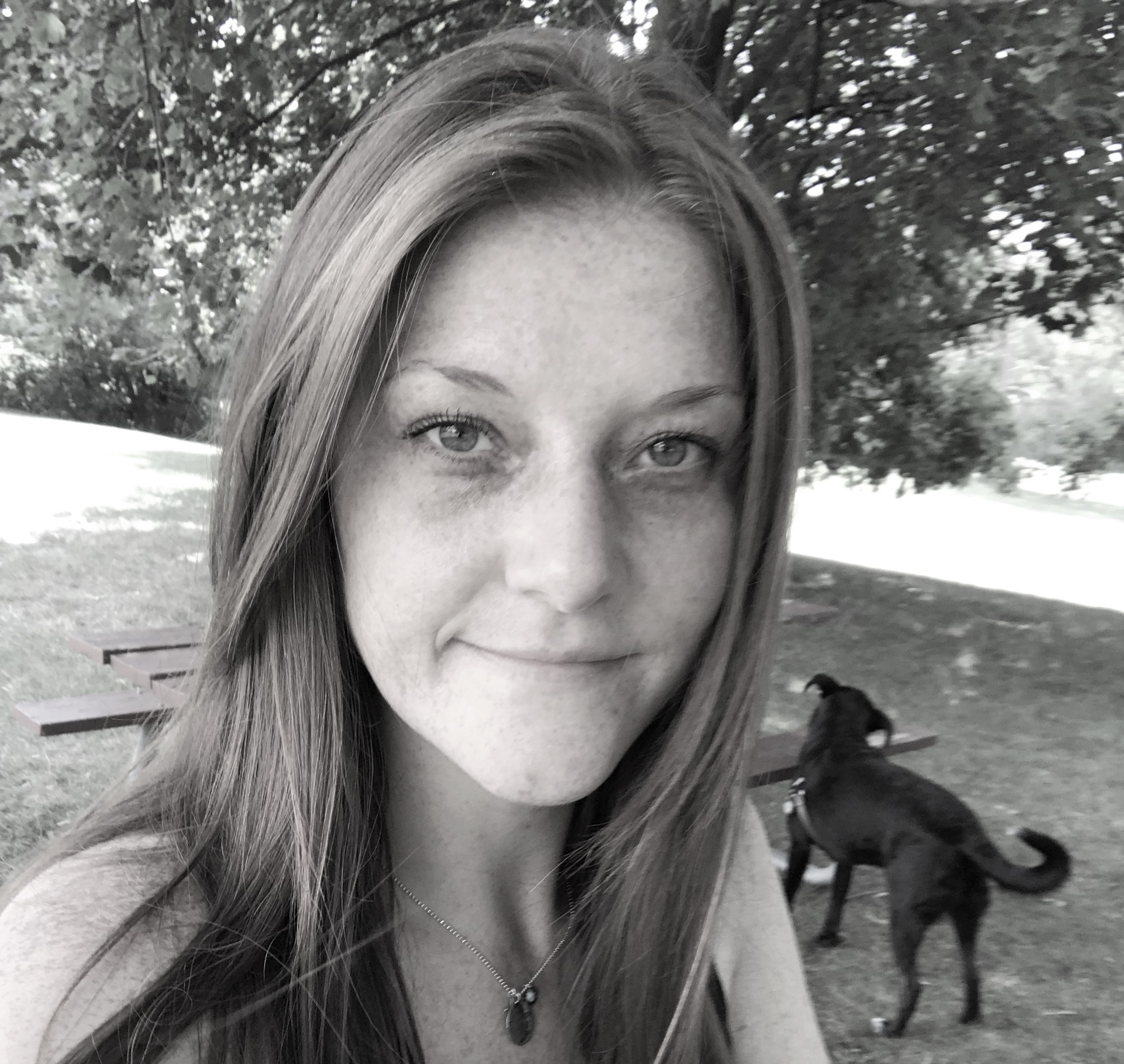 Candice Dimock is currently a graduate student in the School of Public Health and Health Systems at the University of Waterloo in Ontario. She also holds an undergraduate degree in Nutrition and Food from Ryerson University and a diploma in Hospitality Management from Conestoga College.
Candice Dimock is currently a graduate student in the School of Public Health and Health Systems at the University of Waterloo in Ontario. She also holds an undergraduate degree in Nutrition and Food from Ryerson University and a diploma in Hospitality Management from Conestoga College.
In August 2019, Candice was part of the research team who participated in the Cross-Cultural Water Knowledge Camp at the junction of Sahtú Dǝ́ (Bear River) at Tek’áı́cho Dǝ́ (Marten River). In addition to authoring the camp report, her thesis project will follow from the Water Knowledge Camp. The goals of her research are to explore the impacts of climate change on land-based practices and human health for the Dene and Métis Peoples of the Sahtú and to better understand how traditional knowledge and cross-cultural camps contribute to capacity-building and stewardship for youth in the Sahtú.
Jean Erasmus
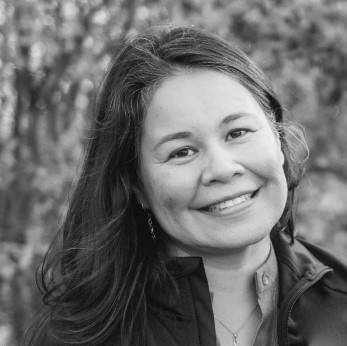 Jean Erasmus is the co-founder of Dene Wellness Warriors, an Indigenous focused wellness business based in Yellowknife, Northwest Territories that offers one-to-one counseling, wellness coaching and workshop facilitation. She is a member of the Canadian Professional Counselors Association, and she is the only Indigenous therapist recognized by Health Canada to work with Residential School Survivors and their families.
Jean Erasmus is the co-founder of Dene Wellness Warriors, an Indigenous focused wellness business based in Yellowknife, Northwest Territories that offers one-to-one counseling, wellness coaching and workshop facilitation. She is a member of the Canadian Professional Counselors Association, and she is the only Indigenous therapist recognized by Health Canada to work with Residential School Survivors and their families.
Jess Dunkin
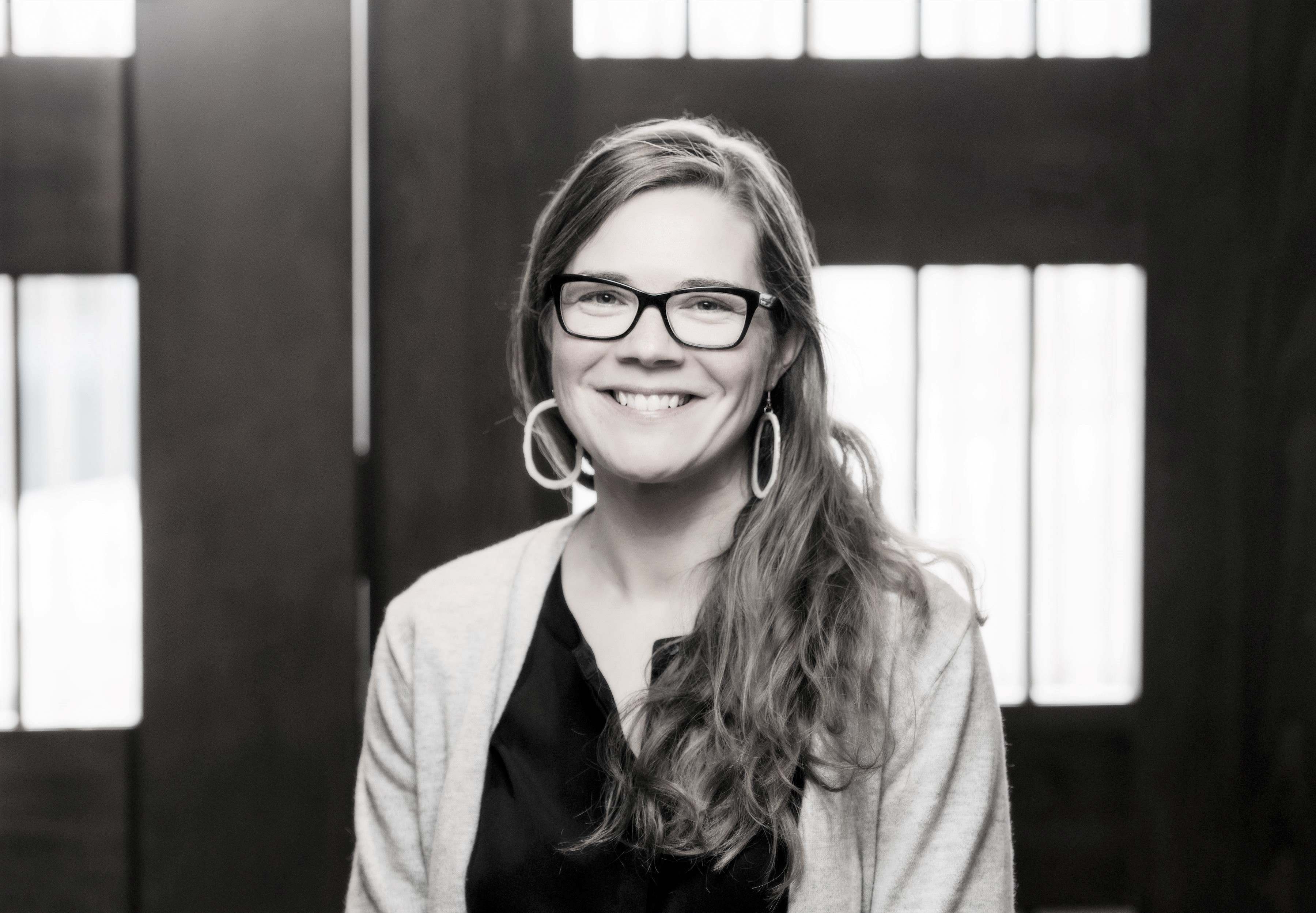 Jess Dunkin is a settler historian and writer, who has lived in Sǫ̀mba K’è (Yellowknife, NT) since 2015. Trained at Trent University and Carleton University as a social historian of sport and leisure, Jess’s research interests have shifted since moving north in response to community collaborations and priorities to also include histories of land relations, industrial development, and residential schooling. Jess began collaborating with Ɂehdzo Got’ı̨nę Gotsę́ Nákedı in 2016 on culturally grounded safety planning. She has also worked with the SRRB on evaluation, guardians training, and the public listening sessions. She is currently the project manager for the Petroleum Histories Project. Jess is a Research Associate at Aurora College and an Adjunct Professor in the Faculty of Kinesiology, Sport, and Recreation at the University of Alberta.
Jess Dunkin is a settler historian and writer, who has lived in Sǫ̀mba K’è (Yellowknife, NT) since 2015. Trained at Trent University and Carleton University as a social historian of sport and leisure, Jess’s research interests have shifted since moving north in response to community collaborations and priorities to also include histories of land relations, industrial development, and residential schooling. Jess began collaborating with Ɂehdzo Got’ı̨nę Gotsę́ Nákedı in 2016 on culturally grounded safety planning. She has also worked with the SRRB on evaluation, guardians training, and the public listening sessions. She is currently the project manager for the Petroleum Histories Project. Jess is a Research Associate at Aurora College and an Adjunct Professor in the Faculty of Kinesiology, Sport, and Recreation at the University of Alberta.
Joanne Erasmus
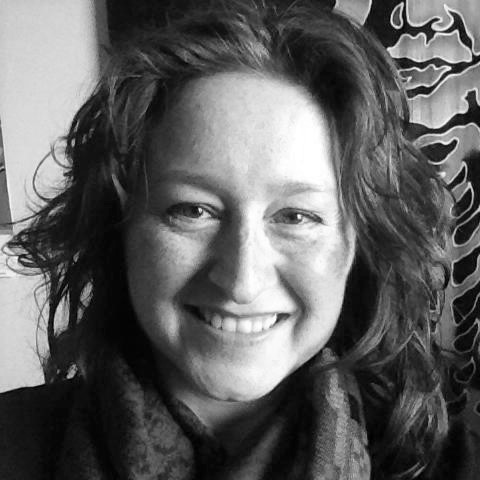 Joanne Erasmus is a member of the Yellowknives Dene First Nation, and was born and raised in Yellowknife. She has a degree in Indian Social Work and specializes in Indigenous wellness and healing – everything to do with helping people. She has been in the counseling field for over 25 years.
Joanne Erasmus is a member of the Yellowknives Dene First Nation, and was born and raised in Yellowknife. She has a degree in Indian Social Work and specializes in Indigenous wellness and healing – everything to do with helping people. She has been in the counseling field for over 25 years.
Ken Caine
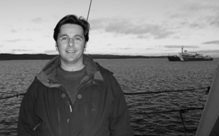 Ken Caine is Assistant Professor of Sociology at University of Alberta. His research focuses on social practices, power dynamics, and institutional bricolage in environmental matters. Ken’s educational and experiential background in natural science (forestry, ecology) and social science (sociology, extension) provides me with the tools needed to move between these research areas. Ken completed his doctoral research with the community of Délı̨nę on Indigenous land governance issues specifically around cultural landscapes and watershed management where the power of stories interact with political power structures suggesting stories and land-use as forms of governance. Ken is interested in the intersection of power, culture, and environmental and resource governance in circumpolar regions as well as areas where communities face development issues around energy, water and climate change.
Ken Caine is Assistant Professor of Sociology at University of Alberta. His research focuses on social practices, power dynamics, and institutional bricolage in environmental matters. Ken’s educational and experiential background in natural science (forestry, ecology) and social science (sociology, extension) provides me with the tools needed to move between these research areas. Ken completed his doctoral research with the community of Délı̨nę on Indigenous land governance issues specifically around cultural landscapes and watershed management where the power of stories interact with political power structures suggesting stories and land-use as forms of governance. Ken is interested in the intersection of power, culture, and environmental and resource governance in circumpolar regions as well as areas where communities face development issues around energy, water and climate change.
Mahalia Yakeleya Newmark
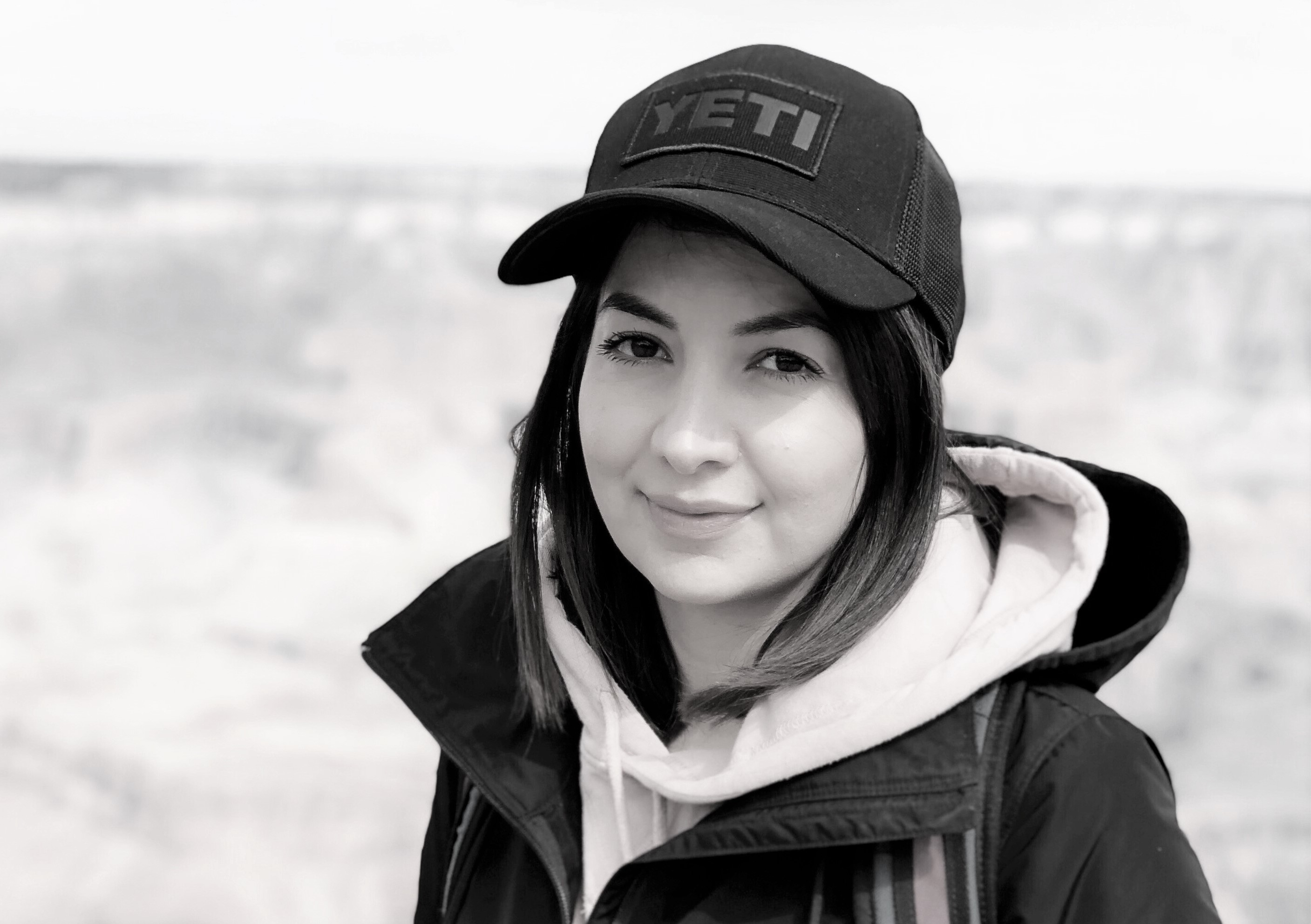
Mahalia Yakeleya Newmark, Tulı́t'a Dene First Nations, is a new Ama (Mom) and Indigenous feminist currently living in Somba K’e/Yellowknife, Canada. Mahalia’s work as a Senior Policy Advisor, Cultural Safety with the Government of the Northwest Territories Department of Health and Social Services seeks to increase access to culturally appropriate care for Indigenous peoples in the territory. She is an equity specialist.
In 2020, Mahalia was selected as one of 20 recipients of the NDN Collective’s Inaugural Changemaker Fellowship from across North America, representing the Northwest Territories region. As a fellow, she is leading an Indigenous public art series titled Strong People, Strong Communities in Yellowknife to celebrate Indigenous peoples through art. The inspiration for this project came from honouring our Indigenous women and their strength in our communities, with special recognition to Missing and Murdered Indigenous Women and Girls. She is constantly thinking about how to centre and uplift Indigenous peoples in innovative ways. In light of the current Covid-19 pandemic, Mahalia is finding creative approaches to support Indigenous expectant mothers in partnership with Indigenous birth workers.
Mahalia graduated with a Master’s degree in Public Administration and a concentration in American Indian Studies from Arizona State University in 2016. Her research area and life-long passion is focused on the concept of Dene womanhood- exploring what it means to be a Dene woman, the traditional roles and responsibilities of Dene women and how that lends itself to leadership. Mahalia received the 2016 Vine Deloria Jr. Student Award for her paper, “Reclaiming Dene Womanhood in Our Stories.” She graduated from the University of Denver in 2008 with her bachelor’s degree.
 Candice Dimock is currently a graduate student in the School of Public Health and Health Systems at the University of Waterloo in Ontario. She also holds an undergraduate degree in Nutrition and Food from Ryerson University and a diploma in Hospitality Management from Conestoga College.
Candice Dimock is currently a graduate student in the School of Public Health and Health Systems at the University of Waterloo in Ontario. She also holds an undergraduate degree in Nutrition and Food from Ryerson University and a diploma in Hospitality Management from Conestoga College. 



 Jean Erasmus is the co-founder of Dene Wellness Warriors, an Indigenous focused wellness business based in Yellowknife, Northwest Territories that offers one-to-one counseling, wellness coaching and workshop facilitation. She is a member of the Canadian Professional Counselors Association, and she is the only Indigenous therapist recognized by Health Canada to work with Residential School Survivors and their families.
Jean Erasmus is the co-founder of Dene Wellness Warriors, an Indigenous focused wellness business based in Yellowknife, Northwest Territories that offers one-to-one counseling, wellness coaching and workshop facilitation. She is a member of the Canadian Professional Counselors Association, and she is the only Indigenous therapist recognized by Health Canada to work with Residential School Survivors and their families.  Jess Dunkin is a settler historian and writer, who has lived in Sǫ̀mba K’è (Yellowknife, NT) since 2015. Trained at Trent University and Carleton University as a social historian of sport and leisure, Jess’s research interests have shifted since moving north in response to community collaborations and priorities to also include histories of land relations, industrial development, and residential schooling. Jess began collaborating with Ɂehdzo Got’ı̨nę Gotsę́ Nákedı in 2016 on culturally grounded safety planning. She has also worked with the SRRB on evaluation, guardians training, and the public listening sessions. She is currently the project manager for the Petroleum Histories Project. Jess is a Research Associate at Aurora College and an Adjunct Professor in the Faculty of Kinesiology, Sport, and Recreation at the University of Alberta.
Jess Dunkin is a settler historian and writer, who has lived in Sǫ̀mba K’è (Yellowknife, NT) since 2015. Trained at Trent University and Carleton University as a social historian of sport and leisure, Jess’s research interests have shifted since moving north in response to community collaborations and priorities to also include histories of land relations, industrial development, and residential schooling. Jess began collaborating with Ɂehdzo Got’ı̨nę Gotsę́ Nákedı in 2016 on culturally grounded safety planning. She has also worked with the SRRB on evaluation, guardians training, and the public listening sessions. She is currently the project manager for the Petroleum Histories Project. Jess is a Research Associate at Aurora College and an Adjunct Professor in the Faculty of Kinesiology, Sport, and Recreation at the University of Alberta. Joanne Erasmus is a member of the Yellowknives Dene First Nation, and was born and raised in Yellowknife. She has a degree in Indian Social Work and specializes in Indigenous wellness and healing – everything to do with helping people. She has been in the counseling field for over 25 years.
Joanne Erasmus is a member of the Yellowknives Dene First Nation, and was born and raised in Yellowknife. She has a degree in Indian Social Work and specializes in Indigenous wellness and healing – everything to do with helping people. She has been in the counseling field for over 25 years. Ken Caine is Assistant Professor of Sociology at University of Alberta. His research focuses on social practices, power dynamics, and institutional bricolage in environmental matters. Ken’s educational and experiential background in natural science (forestry, ecology) and social science (sociology, extension) provides me with the tools needed to move between these research areas. Ken completed his doctoral research with the community of Délı̨nę on Indigenous land governance issues specifically around cultural landscapes and watershed management where the power of stories interact with political power structures suggesting stories and land-use as forms of governance. Ken is interested in the intersection of power, culture, and environmental and resource governance in circumpolar regions as well as areas where communities face development issues around energy, water and climate change.
Ken Caine is Assistant Professor of Sociology at University of Alberta. His research focuses on social practices, power dynamics, and institutional bricolage in environmental matters. Ken’s educational and experiential background in natural science (forestry, ecology) and social science (sociology, extension) provides me with the tools needed to move between these research areas. Ken completed his doctoral research with the community of Délı̨nę on Indigenous land governance issues specifically around cultural landscapes and watershed management where the power of stories interact with political power structures suggesting stories and land-use as forms of governance. Ken is interested in the intersection of power, culture, and environmental and resource governance in circumpolar regions as well as areas where communities face development issues around energy, water and climate change.
 Phone: 867-374-4040
Phone: 867-374-4040 Email:
Email: